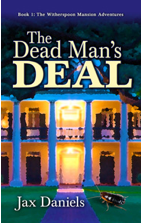 Identifying the words that have connotation worth mining can be a challenge if you are not used to thinking of words in this fashion. Poetry is rife with examples of mining connotation. Find some you like or that has an emotional component like one you are looking for and read it. Make notes; pay close attention to metaphor; write down words that attract your attention. Contemplate what those words contribute. Look them up in the dictionary, then the thesaurus.
Identifying the words that have connotation worth mining can be a challenge if you are not used to thinking of words in this fashion. Poetry is rife with examples of mining connotation. Find some you like or that has an emotional component like one you are looking for and read it. Make notes; pay close attention to metaphor; write down words that attract your attention. Contemplate what those words contribute. Look them up in the dictionary, then the thesaurus.
As you look through the thesaurus entries, note that the long and complex words tend to leave you cold. Long Latinate-based words can be too neutral. In the worst scenario, they can be so dispassionate as to feel cold. When you are working with neutral words, some are better than others even if neither has heavy connotation. Shorter words tend to be better and are usually not Latinate. Our original example of The clouds moved across the sky, though neutral, is much better than The clouds locomoted across the sky. They are both synonyms from the thesaurus, but locomoted is long and Latinate. Latinate words run the risk of being boring, off putting, cold, or scientific feeling. That said, I like the sound of The clouds traversed the sky. Maybe there is a story where that would be the right choice.
Now that you have looked through some thesaurus entries, it is time to try an exercise to help your next scene. I had a terribly difficult time with a battle scene, and I kept consulting with readers and SCA fighters and reading books on tactics. The scene got more organized, but it never got better. I finally figured out that all the staging and proper window dressing in the world was not going to save the scene. What it lacked was an emotional connection to the reader. Emotional situations were happening; they just weren’t connecting with my reader on an emotional level. So I did two things, I looked for ways to expand my understanding of what sensory events were occurring in a battle (in my case I watched movie and Internet clips), and I spent time with a thesaurus to generate lists of words related to events, the sensory experiences of the characters, and relating to what I watched on the clips. Here are some of the words I looked up: battle, slash, clangor, explode, rage, weak, energy, dance, destroy, adrenalin, taste, scent, perfume, odor, cloying, and fetid. Note how the last five relate. If a word doesn’t work (perfume didn’t work for me) keep looking. Look up entries from within the list you are looking at, they themselves will likely have alternative choices, which will help you refine your word lists.
Now you have useful words swimming about your head ready for you to pluck. Or a list you’ve generated to peruse when you feel you need stronger or different terms. The result for my battle scene was nothing short of transforming. It may not have become the definitive scene to end all battle scenes, but it jumped the chasm from boring to engaging.
Go Forth and Do
If you look at your writing, you may see that you have made choices already where connotation is aiding you. Now you understand what it is you were doing when you chose those words. With your conscious understanding of connotation as a tool for writing, you can control more effectively how your reader connects to the scene you are portraying. You can amp up or dial down the emotional elements, revving up your readers or resting them so you can take them refreshed on the next thrill ride. Your job as a writer is to provide the reader the emotional experience they seek. Connotation can be a powerful and subtle tool for manipulating the emotional connection between your story and your reader, so get out your virtual whetstone, hone your new tool, and put it into your writer’s toolbox.


